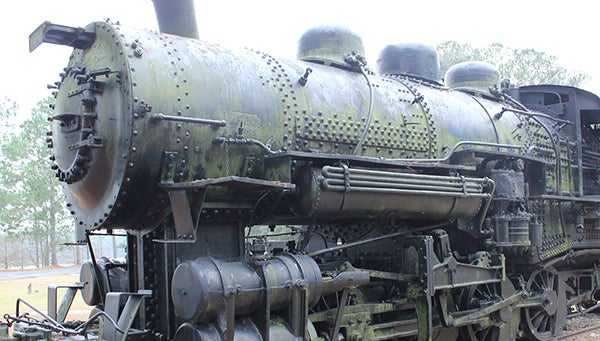City Council tables decision to move boat basin steam engine
Published 10:15 pm Tuesday, January 20, 2015
Tuesday evening, the Bainbridge City Council tabled a discussion about the L&N steam engine at the Earle May Boat Basin after hearing a presentation from representatives of Corbin, Kentucky.
Those representatives addressed the council about their wishes to place the train in a railway museum the Corbin Tourism & Convention Commission is developing.
The steam engine 2132 is one of only three remaining L&N engines and is the only remaining engine that was built by craftsman in Louisville, Kentucky, said Sid Johnson, of Madison, Florida. Johnson, who is the L&N Historical Society president, came to the meeting in support of the Corbin representatives who have been working with the L&N Historical Society.
“It’s also a steam engine that worked in our yard, and the only reason that Corbin exists is because of the railway. The men and women of Corbin have dedicated their lives to the rail,” said Corbin Tourism & Convention Commission director Maggy Kriebel.
“2132 is an integral part to the success of our facility for a number of reasons. Having worked in the yard next to our facility, she’s already an icon of Appalachian hope,” said Jeffrey Cawood, Eastern Kentucky University sociology student and Corbin Tourism intern.
Kriebel explained that the museum came about as part of a Kentucky-state initiative that is working to offset the economic hits to the coal industry.
“The Corbin Rail Project has basically been spawned from SOAR, Shaping Our Appalachian Region, and this is an initiative that Kentucky Governor Steve Beshear has initiated for our state as a result of coal leaving the Appalachian community,” Kriebel said. “That resource is leaving our state, and we have to find other, viable economic alternatives for our city.”
Since fall of 2014, the Corbin Tourism & Convention Commission has been in talks with Bainbridge City Manager Chris Hobby, who invited Kriebel to address the council.
An estimate has not been determined as to how much restoration would cost, but Johnson said that it would not be cheap.
“It’s just rusting down to nothing but a bucket of bolts out there,” Johnson said, “and it takes a real craftsman to put something like that back together again, to put it together right and to do it in a manner that is really pleasing to the eye as well as the historical preservation.“
Councilmember Rosalyn Palmer voiced her opinion that the train should stay, despite it not having as deep of ties to Bainbridge.
“Yes, it’s embarrassing that we’ve not kept this facility up like we should have, but I think we need to look closely at it,” Palmer said. “It’s been in our community for approximately 35 years. That starts to become history. Once it’s gone, it’s gone. I think we need to look at fixing it.”
Councilmember Luther Conyers’ biggest concern is that Bainbridge could potentially lose something of historical value and gain nothing in return.
Kriebel said that she and others in Corbin are looking for potential replacement landmarks to help bring to Bainbridge, given the Council votes to give or sell 2132 to Corbin.
Councilmember Glennie Bench voiced concern over the hurdles of restoring the train.
“I’m concerned that we can’t maintain it in the condition or restore it to the condition that it should be in, given its unique history and its unique status as the only left from this manufacturer,” Bench said.
Bainbridge resident Ted Snell said that he believes the community wants to see the train restored, while resident Francis Willis said she thinks the council should seek more information.
“I can’t believe we’re not going to accept an offer to save that train,” Snell said. “I, as a taxpayer, would rather see a riverboat, what we’re famous for, rather than that beautiful locomotive that has deteriorated to the point that they will be lucky to save her.”
Kriebel said that she understands Bainbridge’s attachment to the train and is thankful for the opportunity to educate the community and Council on its history.
“I come from a parks background,” Kriebel said, “and I certainly understand that children have grown up climbing on the train. Corbin was built by that train.”






